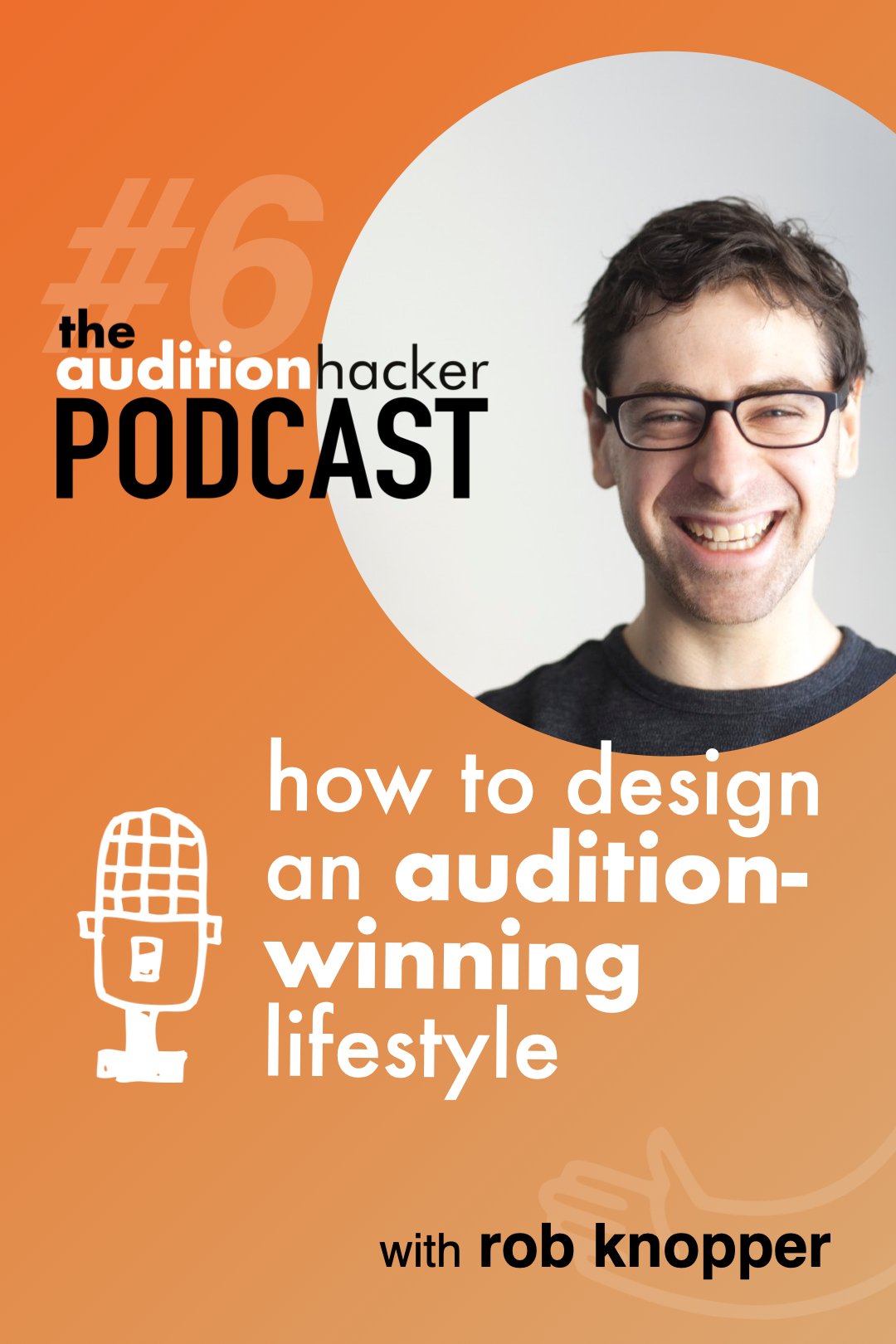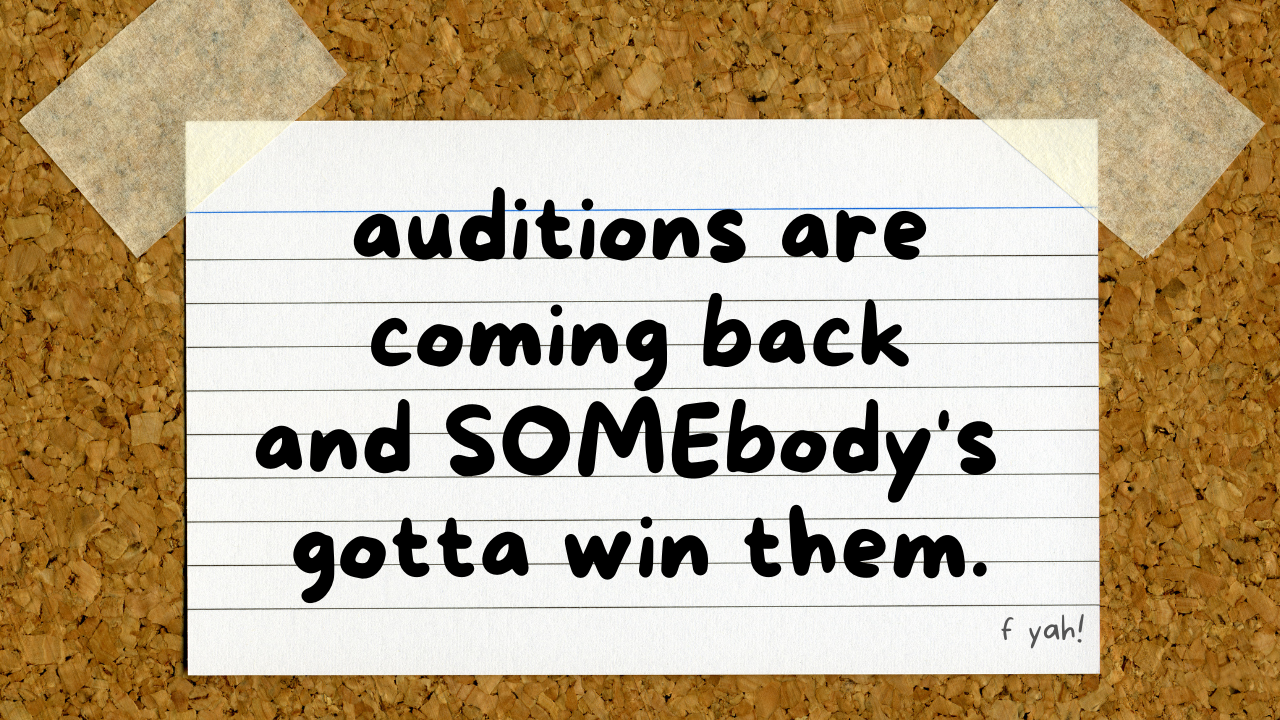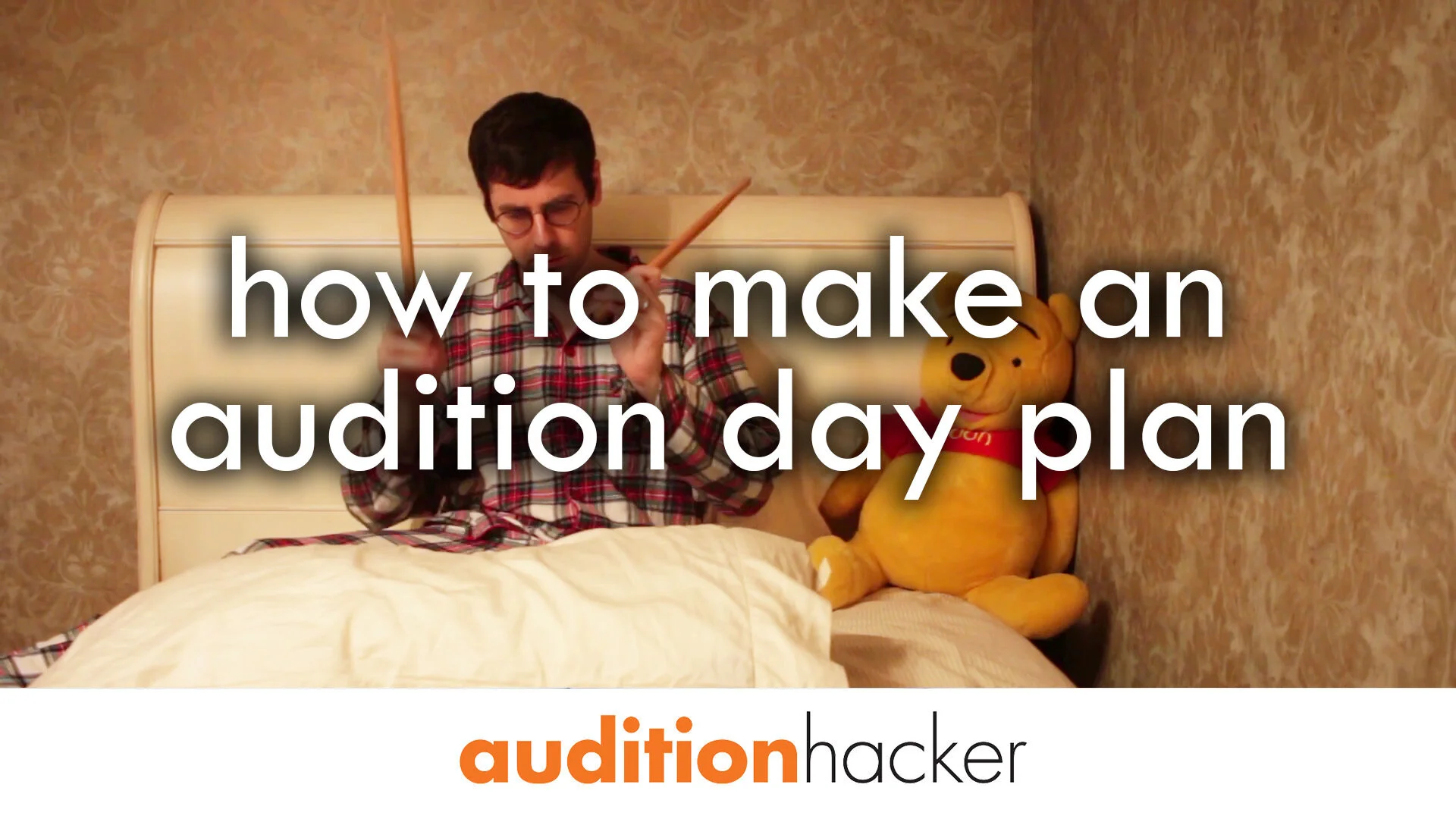today’s day 6 (!) of the #12daysofdelécluse. this summer, i developed this clinic on self recording for students at aspen music festival, juilliard, and buti. a few years earlier, i gave a class that was a full audition preparation tutorial, and it touched on the three major phases of audition prep: learning the notes, recording, and mock auditions. after giving those classes, i wrote an in-depth presentation on self-recording including:
1. the concept (day one)
2. the tools (day two), and
3. the practice (day three)
the design of audition prep
people ask me all the time about how i won a job in the met orchestra. thinking through it, there’s too many variables to pinpoint any one thing. but, something that I actually have in common with a lot of my peers who have won jobs is that a lot of those successful players have highly developed preparation systems or methodology. i’m not saying that you should ignore the audition day while you’re practicing. the end product, which is your actual audition, is an important and essential PART of the process, but it’s much more important as a student to work on the entire process of learning and polishing music, and audition preparation. that process, for me, has three phases.
phase one: learning the notes. i spend quite a bit of time learning the basic notes, rhythms, tempos, dynamics, and other details embedded within the music. that could take two months, or more, depending on the rep.
phase two: recording yourself. you've learned the notes, so you have the raw material and you can play through the pieces. i spend another 6 to 8 weeks meticulously going through every excerpt, recording myself, and polishing all the details until I feel like it matches my vision of the piece.
phase three: mock auditions. that’s practicing and getting comfortable with the actual experience of performing an audition.
this spring I recorded the delécluse album. I spent about 7 months preparing these 12 pieces and getting ready to record them. the actual recording sessions took about 6 hours total. i used the exact process of self-recording during phase 2 that i had developed during my audition preparation days when I was learning the delécluse etudes for recording. it’s definitely the most important part of your audition prep. during phase 1, learning the notes, you’re just trying to survive your way through the music. during phase 3, you’re trying to have the performance-readiness to actually show off what you worked on. but phase 2, self-recording, is the phase where you actually chisel your solos and excerpts into the most perfect, ideal versions of themselves that perfectly express what’s written on the page and what you want to say musically.
separate playing and listening from your workflow.
first, let’s talk about workflow. what is workflow? workflow is the collection of steps you go through when you’re practicing. traditional practice workflow looks like this:
so, for instance, you’re playing a piece, and you identify a passage that needs work. the workflow is the actual processing that you ‘do' to the passage to improve it. if you’re playing the xylophone excerpt from the firebird suite, you might find a passage that needs work. you isolate it and begin to repeat it a few times. you play, listen to yourself play, think of how to solve it, and try something else. that’s the workflow we’re talking about. it has pros and cons, and it’s the process that needs to be updated. because, while this workflow is an essential part of your practice, and it may be how you’ve always done things, there are some huge gains to be made in your playing by making little adjustments to your workflow.
now, why do we need to change it? 3 ways. the first is that you can separate the activities of playing and listening so that you can focus harder and observe more things during the workflow. second, you can give yourself the chance to define the musical vision, and force yourself to find a way to execute it. finally, you can start to choose the most important problems, the ones that really need fixing, and give yourself a chance to fix them for good and not just for now.
the new workflow that we’ll use today is the self-recording workflow, which is:
eliminate multitasking
the entire reason for recording is to eliminate the multitasking that is innate in the traditional practice workflow. if you are practicing, just you and your instrument, you’re always going to be doing the actions of playing and listening at the same time.
it’s just like texting and driving. if you do both at the same time, you can’t do either one as well.
when you’re playing, you should be able to fully focus all of your attention on the act of playing. maybe you need to focus on the pressure between your fingers and the stick, or maybe you need to be fully engaged with the musical phrase at that moment.
recording yourself allows this increased focus. first you play, and you put all your focus into what exactly you can do to perform this in an improved or optimized way. keep your eye on the ball here - set yourself up, draw your eyes to the tips of your sticks, and perform. don’t take your attention away from this activity. then, now that you have the recording, you can change your focus to listening and analysis. i’ll explain this more in depth on day 3.
recording forces you to decide your musical vision
as you go through the workflow of playing, listening back to the recording, and solving the problems in your playing, you’ll find yourself doing an incredible amount of self-analysis. your iterations through the workflow are supposed to improve your playing. specifically, it’s a process for you to define your ultimate musical vision, and try to raise your execution to the level of your 'golden vision' of the piece.
this is actually an important distinction. when we practice, often we are trying to make slight improvements in the current version of the piece. when you constantly listen to your recordings, you end up having higher expectations of yourself. when you are forced to listen to the naked version of your own playing, you’ll be more likely to tackle more problems and to tackle each problem more effectively. instead of having an ever-changing musical version of the piece, you’ll be forced to grapple with the different possibilities, analyze which one works best for you, and figure out what you need to do to execute that chosen version reliably.
choose the right problem to fix, not the most convenient
the last point i wanted to make about the process of recording yourself is that instead of identifying the easiest problem to fix as soon as you find it, you’re going to find the most important problem to fix. and through the repetitive process, you’re going to be forced to find a solution to that problem that fixes it permanently in a way that you can count on, rather than just a temporary fix for the time being.
when you’re analyzing your recordings, you’ll have the ability to fully focus on the recording. you can listen repeatedly, you can slow the audio region down, and you’ll find a ton of problems. instead of just fixing the first thing you find, you’ll have the mental focus to prioritize and choose the most important problem to fix.
you’ll also be listening repeatedly, which means that even after you fix a problem, you’ll come back to the 'listening and analysis' step in the workflow. you’ll revisit your work on a previous problem and confirm whether it was truly fixed or whether it was just a temporary fix. your problem-solving activity might be more involved than it would be during regular practice, because you’re forced to check your work over and over. if you fix a problem, then 3 or 4 iterations later you hear the problem again, you obviously need to find a new problem solving-method that solves the problem permanently.
ok, now that we’ve gone over some of the basic philosophies, benefits, and strategies of recording yourself, we have to set ourselves up to record. see you next time!
looking for an audition breakthrough?
here's my 5-step guide to constructing your preparation process and optimizing it for maximum results for any instrument.













in 2019, a cellist named maria reached out to me about her audition struggles. on paper, she was the “worst audition candidate ever” (her words). she had 2 small children, a full-time teaching job, and hadn’t taken an audition in 4 years.